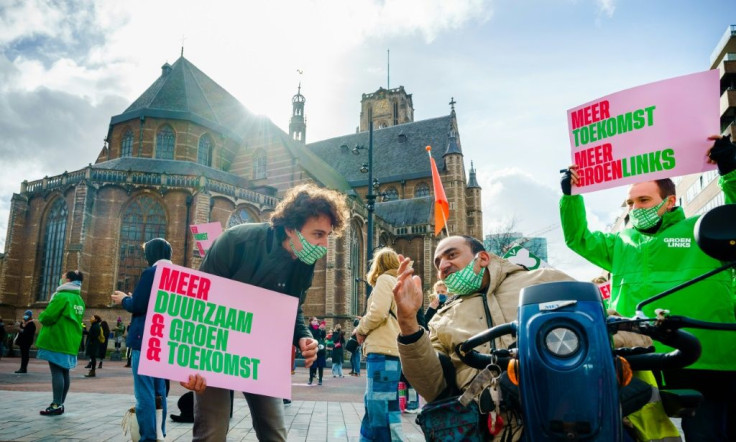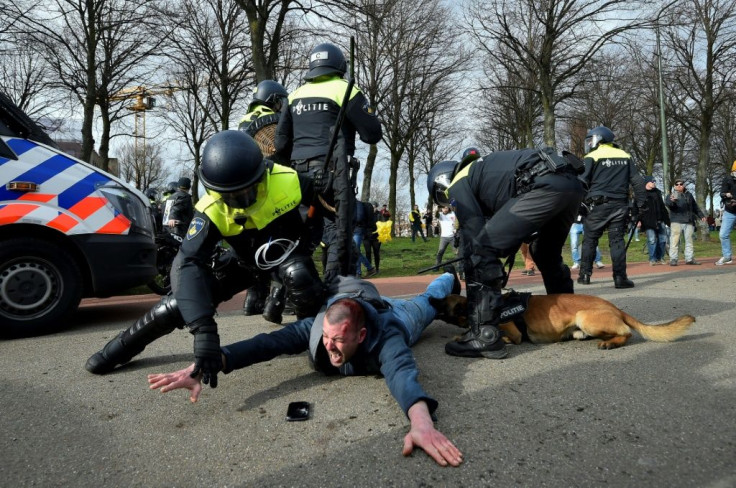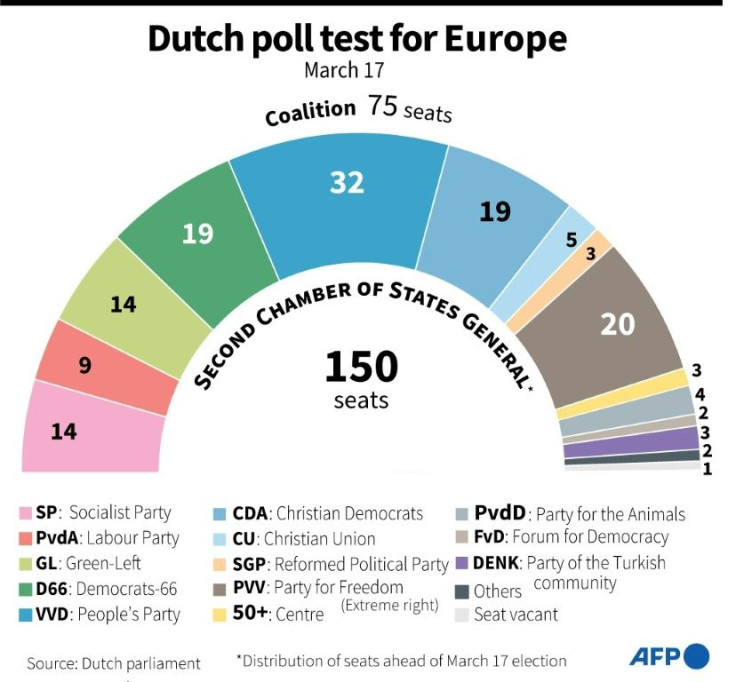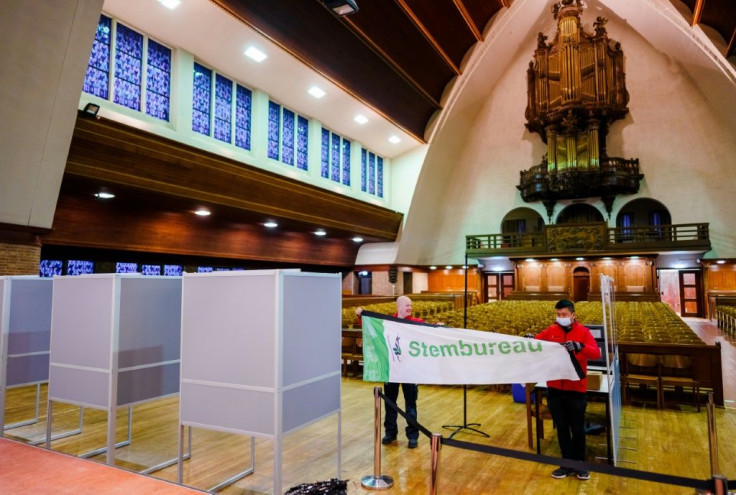Dutch Vote In Covid-dominated Election
The Netherlands began three days of socially-distanced voting Monday in one of the first major tests of a European government's coronavirus policies, with Prime Minister Mark Rutte expected to win another term in office.
Bike-through voting centres and polling booths in railway stations and even a miniature theme park opened to the public, with the elderly and at risk encouraged to vote on Monday and Tuesday before the main election day on Wednesday.

Despite the country remaining under tight Covid-19 restrictions, voters were also being allowed out past a 9 pm curfew to ensure that the virus does not prevent people from casting their ballots.
"I am actually quite happy I could vote on a day like today because I want to avoid busy places with these circumstances," trainee teacher Wilco Jacobs, 23, told AFP after voting in The Hague.
"I am personally slightly at risk because I am already obese and I do have somewhat weaker lungs."

The election results will come late Wednesday and Rutte -- in power since 2010 and one of Europe's longest-serving leaders -- is expected to emerge as head of his fourth successive coalition government.
The pandemic and the government's handling of it drowned out previously dominant issues such as immigration, and opinion polls show Rutte's liberal VVD (People's Party for Freedom and Democracy) party with around 25 percent of the vote.
That would give them slightly more than their current 33 of the 150 seats in parliament.


But there is also discontent, with police using water cannon to break up an anti-Rutte protest on Sunday, and riots against the introduction of the curfew in January.
"A lot of people think 'leave Mr Rutte to finish the job' and that's perhaps a good idea, but he has to leave after that," language teacher Lies Eisma, 72, told AFP after voting.
"We've seen him for long enough and I am not in agreement with all his measures, and especially not with solving all the problems that we have now in the Netherlands. Those he simply let slide."

Dubbed the "Teflon" premier for emerging unscathed from crises, Rutte recently shrugged off the fact that he had to resign in January over a scandal in which thousands of parents were falsely accused of scamming childcare.
He has since continued in a caretaker role.
Rutte initially embraced a lax anti-virus policy, but has since drastically toughened up, notably introducing the first nationwide curfew since World War II.
The Netherlands, with a population of around 17 million people, has so far recorded around 1.1 million coronavirus cases with 16,000 deaths.
Opinion polls, however, show Rutte far ahead of his closest rival, the anti-Islam PVV (Freedom Party) of Geert Wilders, which is on around 13 percent, making it likely to remain the second-biggest party in parliament.
"It seems that right-wing voters really like the VVD and Rutte," Andre Krouwel, who teaches political science at the Vrije Universiteit Amsterdam, told AFP.
"So they're getting not only what we call the 'prime minister bonus', that being in the office of prime minister provides, but also the 'corona bonus', because he was the spokesman during the pandemic.".
Rutte's coalition partners, the conservative Christian Democratic Appeal (CDA) and Christian Union, are vying for third place in the election, meaning they could likely return to government too.
But with a large group of others including the Greens (GroenLinks) not far behind, the shape of any eventual coalition remains uncertain -- and after the last elections in 2017 coalition talks took seven months.
"This is actually my first time that I'm voting so it is very exciting either way even though it might be different than previous years," she said.
"It's very difficult to deal with something like Covid... so we should grant the government some leniency in that aspect but I still think there are a lot of things they could have done better."
© Copyright AFP {{Year}}. All rights reserved.





















